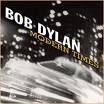One of the reasons our blog, Rave On!, is here is to talk about musical fiction—help define what it is and push other musical novels to readers who will appreciate them.
I was intrigued by the comment of John Niven (author of Music from Big Pink; see previous post): "Grab a pencil and draw up a list of novels featuring an invented rock group that have really worked. Done? You should have a piece of paper with Roddy Doyle's The Commitments written on it." See comments here.
Well, we here at Coral Press disagree; and clearly, we believe, Niven hasn't read any of our books (and we hope that'll change).
But what got me going was that I hadn't read The Commitments yet, though I'd seen and enjoyed the fine Alan Parker movie when it came out in 1991. So I finally picked up a copy of the novel, the first American edition from Vintage Contemporaries. (Interestingly, the first edition of The Commitments was self-published in Dublin in 1987—then as now,

the book industry doesn't get musical fiction, at least until they have to. And a quick visit to ABE shows that those first, self-printed editions now go for well over a thousand dollars each.)
What an interesting novel. His style, somewhat telegraphic, reminds me of a great musical fiction short story, Eudora Welty's "Powerhouse," in which the rhythm of the prose captures much of the rhythm of the music; and of course The Commitments is great as it captures (helps invent?) Northern Soul—that fascination with soul music that's brought countless unremarked '60s soul 45s to the attention of ... well, at least obsessed collectors. (Missed the recent Northern Soul convention at a hotel in New Jersey, but I'm sure a fine time was had by all.)
So how does The Commitments stack up as musical fiction? And what does it tell us about the genre? One obvious thing of great interest was Doyle's type choices: the use of bold type spilling down the page to get the feel of the music across. I'm not sure it always worked; also not sure that, since he was dealing with known soul songs, that printing the lyrics more simply might not have let the songs themselves play in our heads.
But that's one of the dilemmas of musical fiction: getting the music, no more than words on a page, to play in the reader's own head. With our Coral Press books this is especially a problem, since we're dealing with invented songs that the reader has never before heard. But we believe that if the context of the song's playing or performance, as well as the way the song's received, are vivid enough, the music will come through.
The Commitments is certainly a simple enough story: a group of somewhat musicians comes together in Dublin, plays a few shows, then falls apart. Anything more narratively would probably be overkill. Another thing the book does so well is that we often only catch what's really going on through the flicker of our eyes; it's in a word choice, an aside, a beat of silence that the book reveals its true meanings and secrets. Admirable restraint on Doyle's part.
But then the scope of The Commitments remains somewhat restrained; and the book itself, though a brilliant little tale, never quite blows up into something larger. A neat trick, if you will, rather than a wide-open, blossoming novel.
Talking about this book also brings up a good occasion to mention the Bomp Bookshelf's compilation of musical novels. The list was personally kept up by Bomp Records founder Greg Shaw (a true friend of Coral Press), and unfortunately it's been frozen after his untimely death in 2005. Nonetheless, a reader searching for a good list of Rock 'n' Roll fiction should start there. Another list, this one using a larger definition of musical fiction, is kept by John R. Gibbs here.
We hope you'll let us know some of you favorite musical novels. Feel free to post comments here or email us at editor@coralpress.com.
 Both books are highly recommended—Laura’s paintings capture, in their forceful colors, deep-rooted innocence, and devil-may-care whimsy, much of the essential mystery that makes early rock and country music so powerful; and if you hie yourself to the Mystery Spot, Laura will autograph each book personally for you.
Both books are highly recommended—Laura’s paintings capture, in their forceful colors, deep-rooted innocence, and devil-may-care whimsy, much of the essential mystery that makes early rock and country music so powerful; and if you hie yourself to the Mystery Spot, Laura will autograph each book personally for you.




